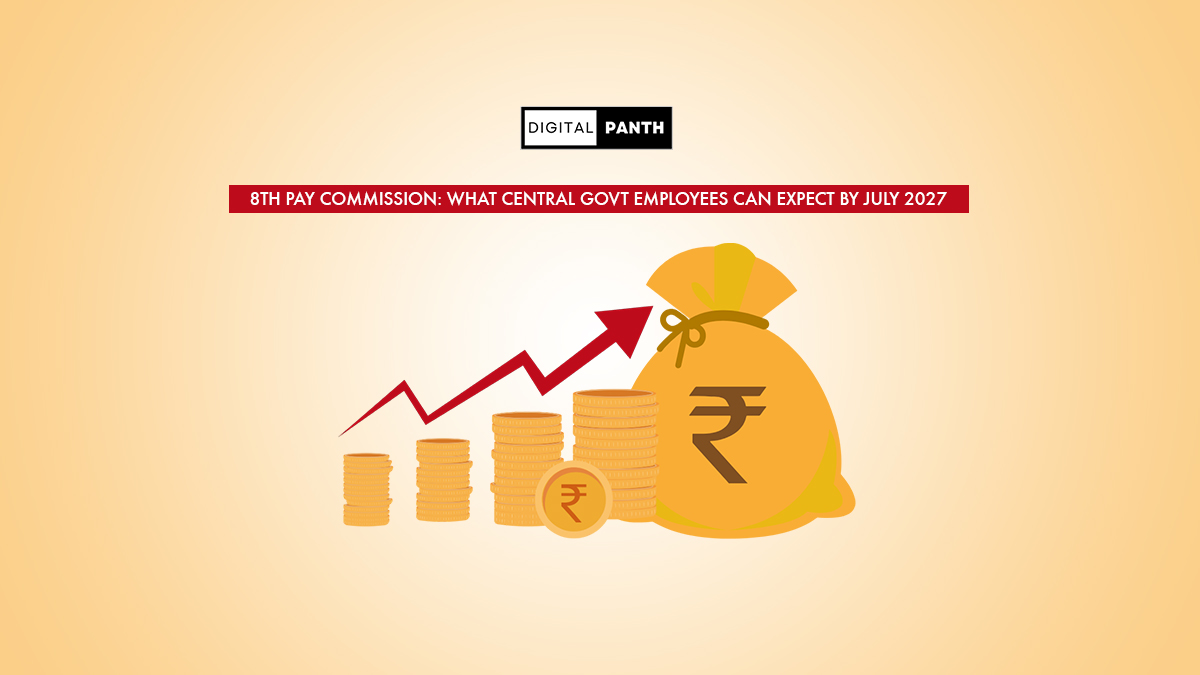The 8th Pay Commission is eagerly awaited by millions of central government employees and pensioners because it will establish revisions to salaries and hikes to pensions that align with economic realities. While the Union Cabinet approved the commission earlier this year, extending its Terms of Reference (ToR) and its official constitution has taken longer than anticipated. Based on current information and expert assessments, proposed worst-case timelines for implementing the 8th Pay Commission salary hikes are July 2027, with expected education of circa forty-four million (44,000,000) in accumulated (18-month prior) retroactive pay.
This article outlines the latest information in summary form, expected consequences mentioned, and what employees/pensioners should know.
Background and Importance
Every ten years, the government sets up a Pay Commission to review and revise the pay scales, allowances, and pensions for central government employees. The Pay Commission Recommendations of the 7th Pay Commission were released in 2025, after which the underlying model of pay structure has remained unchanged. The role of the 8th Pay Commission is to revise salaries, which are informed by inflation, a higher cost of living, and changing economic reality.
Gap-prior (timely) salary revisions are important to protect employees’ purchasing power and to ensure that pensions allow for a reasonable (decent) living for retirees. The 8th Pay Commission is therefore important to enhance the financial well-being of workers/pensioners within the public service.
Timeline and Current Status
Despite the Union Cabinet’s sanction of the 8th Pay Commission proposal publicised in January 2025, the official notification that constitutes the commission and the approval of the Terms of Reference have not been signed off on yet.
Earlier in 2025, the National Council-Joint Consultative Machinery (NC-JCM), representing government employees, made its recommendations for the TOF. They are eagerly awaiting government action to approve it. if history is any guide, once a Pay Commission is assembled as a group of individuals, it takes between 18 and 24 months to prepare and report its findings, followed by an additional time of an estimated three to nine months for the government to formally review and approve any recommendations to implement.
In this context, if the commission can be constituted by early 2026, we could see a published report by approximately mid-2027, and back pay and new pay begin with the commencement on July 1, 2027, at the earliest. In the best-case scenario, this would be a frequent refrain from union leadership and commentators.
The Arrears Factor
Due to delays in the commission’s constitution and report submission, the salary hike will likely be paid with arrears dating back approximately 18 months, from January 2026 to the implementation date in mid-2027. Arrears are compensation for the period during which employees worked without revised pay. This back payment will provide a financial boost to employees and pensioners, helping to compensate for the long wait following the last revision.
Expected Salary Increase
Though specifics await the commission’s final recommendations, experts estimate the fitment factor—the multiplier applied to current basic pay to be between 2.46 and 2.86. This suggests a pay hike ranging from 13% to 34%, depending on rank and pay level.
Apart from basic pay adjustments, the Dearness Allowance (DA) will likely be revised upwards or merged with basic pay, boosting take-home pay further. Pensioners can anticipate a rise in their monthly pensions, with estimates suggesting the minimum pension could nearly double from ₹9,000 to between ₹18,000 and ₹20,000. Allowance structures may also be rationalised further to simplify benefits and remove redundancy, continuing the trend started by the 7th Pay Commission.
Challenges Ahead
Despite the optimistic timeline, some challenges remain:
- Fiscal constraints and government budget priorities could influence the extent and pace of salary hikes.
- Political decisions and economic conditions will affect the implementation of pay revisions.
- Employees and pensioners should monitor official updates from the government and union representatives for the latest information.
What Should Employees and Pensioners Expect?
- Salary hikes and arrears payments will reach employees by July 2027, barring unforeseen delays.
- Pensioners will likely see increased pension payments reflecting new pay and DA revisions.
- Allowance changes may alter overall salary composition but aim to improve fairness.
- Employees should plan financially, considering a mid-2027 revision timeline.
| Step | Expected Time |
| Cabinet approval | January 2025 |
| ToR approval and commission setup | Late 2025 to Early 2026 |
| Commission report submission | Early to Mid 2027 |
| Salary hike rollout & arrears payment | July 2027 |
| Arrears apply from | January 2026 |
Conclusion
The 8th Pay Commission is still a ray of hope for central government employees and pensioners waiting for a pay revision due to inflation and economic vicissitudes. While the commission’s timelines have been delayed due to process concerns, the best-case scenario is that the commission’s work will be completed by mid-2027 with some financial improvement and back pay. Being aware of developments and planning will allow employees and pensioners to easily work through a transitional period. The 8th Pay Commission is very likely to provide an important opportunity for the economic well-being of India’s central government employees.
Disclaimer: The information in this article is based on publicly available reports and expert opinions, not official government announcements. Actual 8th Pay Commission timelines and pay revisions may differ. Readers should verify details through official Government of India notifications.

